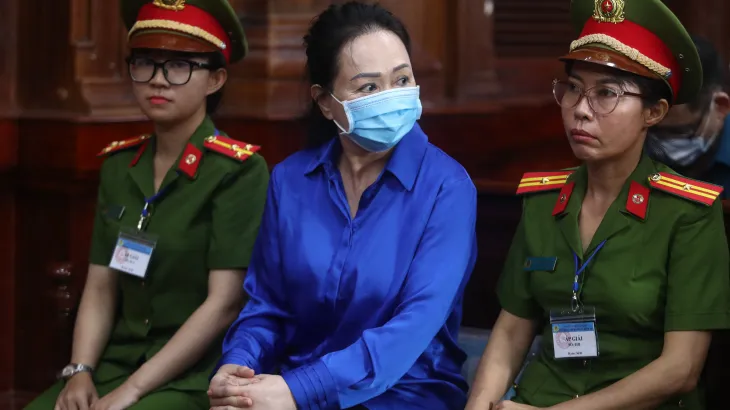Truong My Lan, the Vietnamese property tycoon who was sentenced to death in April for her role in the country’s largest corruption case, is now facing additional fraud charges, Al Jazeera reports.
Lan, chair of the real estate company Van Thinh Phat, appeared in court on Thursday, where she is accused of obtaining property by fraud, money laundering, and illegal cross-border money transfers. This new trial is expected to last a month.
According to police statements, Lan allegedly raised 30 trillion dong ($1.2 billion) from nearly 36,000 investors through illegal bond issuance using four companies. She also stands accused of laundering 445 trillion dong ($18.1 billion) and illegally transferring $4.5 billion into and out of Vietnam.
Lan’s arrest and conviction in April were a culmination of the “Blazing Furnace” anti-corruption campaign, which has intensified in Vietnam since 2022. This campaign has resulted in the arrest of numerous business executives, government officials, and members of the police and armed forces.
This new trial follows Lan’s conviction for orchestrating the country’s largest-ever financial fraud, amounting to $12.5 billion, and for illegally controlling the Saigon Commercial Bank (SCB), leading to $27 billion in loan losses.
The SCB fraud case has deeply shaken the communist nation, prompting rare protests from victims who lost their savings. About 36,000 people have been identified as victims of the fraud.
Lan and 33 alleged accomplices were brought to court early on Thursday in a convoy of police vans. Outside, dozens of fraud victims gathered, demanding entry to the hearing.
Lan, who began her business career selling cosmetics in Ho Chi Minh City’s oldest market alongside her mother, established Van Thinh Phat in 1992, shortly after Vietnam transitioned to a more market-oriented economy.









